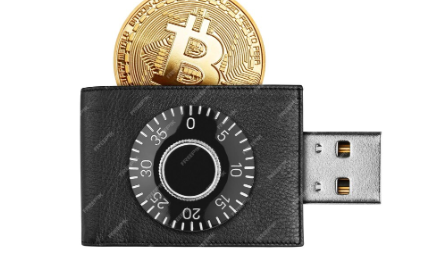How to Store Bitcoin Safely: Types of Wallets and Their Features

Bitcoin has been one of the most traded cryptocurrencies in the world for many years. But to store it safely and securely, you need a place that only you can access. Here comes the digital wallets to help you in this regard. These wallets are available in various formats, allowing you to choose the one that best matches your financial needs and preferences.
If you want to know what is Bitcoin, and what types of wallets you can use to store this cryptocurrency, this guide is for you.
- Hardware Wallets
Hardware wallets refer to different physical devices that you can use to store your cryptocurrency’s private keys offline. They offer high security. As they are not connected to the internet, there is no risk of online threats or hacking.
If you need a safe place to store your cryptocurrency keys, hardware wallets can be an ideal choice. They typically require a PIN to access and use the device. This adds an extra layer of protection. Moreover, many hardware wallets offer two-factor authentication to ensure the security of your valuable assets.
However, when you are setting up a hardware wallet, it generates a recovery phrase. So that in case you forget the PIN or lose your device, this phrase may help you restore your wallet and access your cryptocurrency. But hardware wallets are not recommended for frequent trading or interaction with decentralized applications. They have limited functionality and may not benefit you while executing trades as other wallets.
- Multi-Signature Wallets
The multi-signature wallets require multiple private keys to authorize a transaction. This feature provides you with enhanced security. You can customize these wallets to require a different number of signatures, adjusting the security and control levels according to your needs and preferences.
Moreover, the multi-signature wallet offers you shared control. It means multiple parties or individuals can manage and access the digital assets jointly. That’s why these wallets are the first choice of organizations, teams, and individuals who want to manage their different digital assets with greater control and oversight.
No doubt, these wallets have many benefits and offer enhanced security features. But setting them up for use can be a daunting task. It requires proper knowledge and expertise to set and manage a multi-signature wallet.
- Software Wallets
Software wallets are applications that you can use to store your various digital assets. They can be either desktop or mobile. These wallets are also known as hot wallets, as they are connected to the internet. You can use them to hold your private keys and interact with the blockchain.
The software wallets are more convenient to use but also are vulnerable to potential risks, such as online threats and hacking. So, you must be careful while operating them and make sure to ensure proper security.
You can access the software wallets from multiple devices, such as computers, smartphones, and laptops. This flexibility makes them an ideal choice for many traders.




